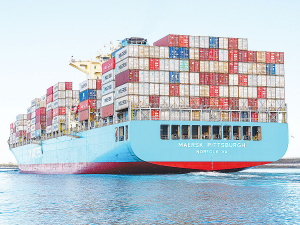Trade logistics are once again set to become challenging for the NZ agricultural sector because of tensions in the Middle East.
In recent weeks, Houthi rebels based in Yemen have attacked ships going through the Red Sea and then via the Suez Canal to the Northern Hemisphere. This has triggered military retaliation by the US and UK, with the backing of other countries.
Rabobank research manager, Stefan Vogel, says this may mean increased costs for imported goods, including agricultural inputs such as fertiliser and farm equipment.
He says this is because more shipping companies are diverting their vessels away from the Suez route and are instead taking a 9-15 day detour around Africa’s Cape of Good Hope. Such a detour will add to the cost of any imports that would normally come through the Suez Canal and Red Sea.
But he adds that the impact on the cost of fertiliser will be mixed because nitrogen and compound fertilisers are mainly sourced from Asia and the Middle East, so will not be affected the Red Sea crisis.
“But a lot of phosphate rock comes from Morocco and potash from Europe and North America and those shipments normally go through the Suez Canal,” he says.
Vogel says containerised shipments both to and from NZ will be affected. He points to the 2021 freight crisis which saw NZ struggle to get sufficient containers to ship its exports to overseas markets. He warns that a similar crisis could occur again if the Red Sea situation tightens global container freight capacity.
He says that every vessel that’s longer at sea is slower to load their next cargo and that’s limiting the available shipping capacity and driving freight costs up.
“The good news is container freight rates now are still three to four times below the massively Covid-inflated levels of 2021. Imported goods into New Zealand will have to bear the higher freight costs, but container freight is unlikely to get as expensive as in 2021,” he says.
Vogel says there is a potential upside from the Red Sea tensions because NZ is likely to be more competitive with its exports into the Asian market. He says several of NZ’s key agricultural export competitors usually ship products into Asia through the Red Sea, and if tensions in the area remain heightened, they may be forced to divert more of their product into Asia via the longer and more costly route around Africa.











